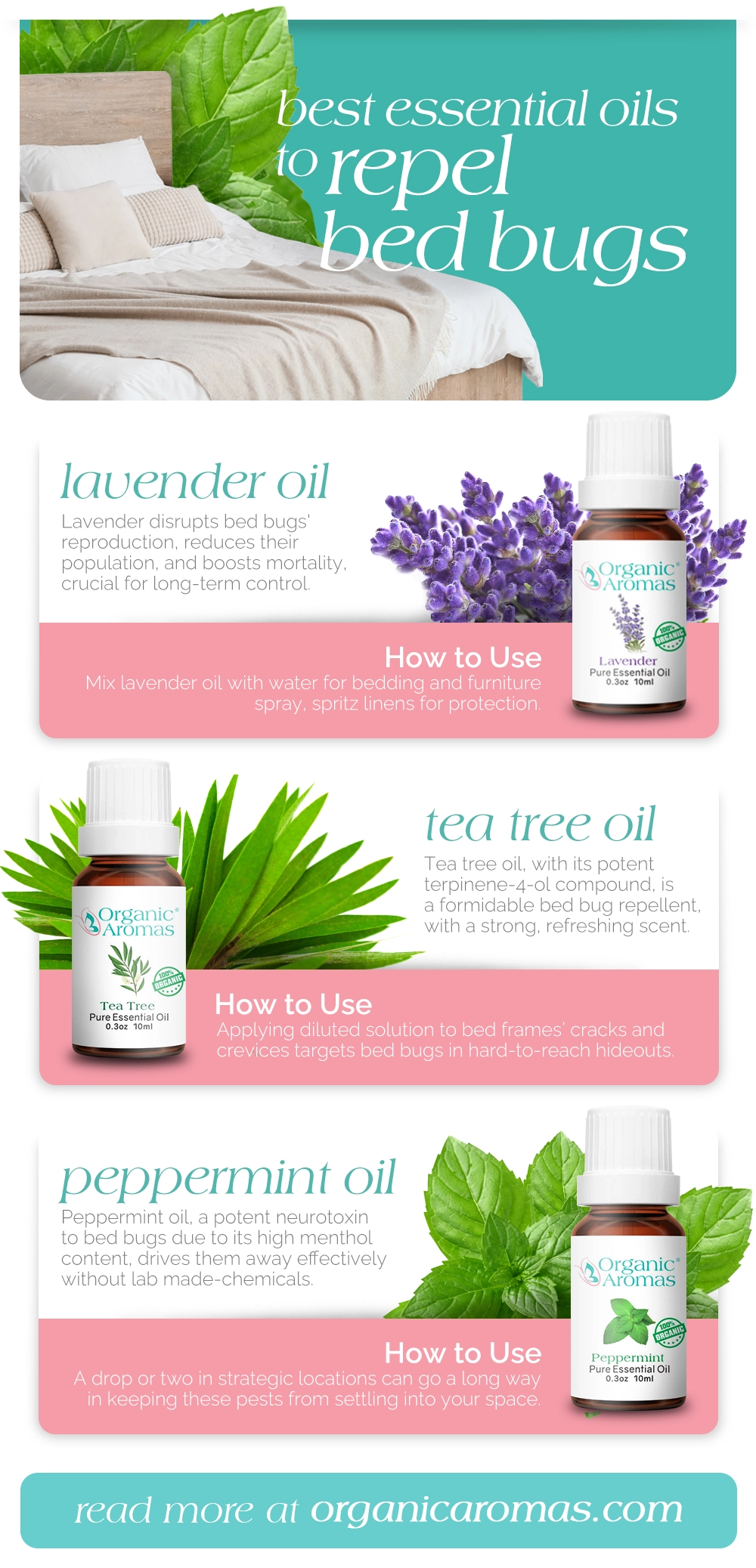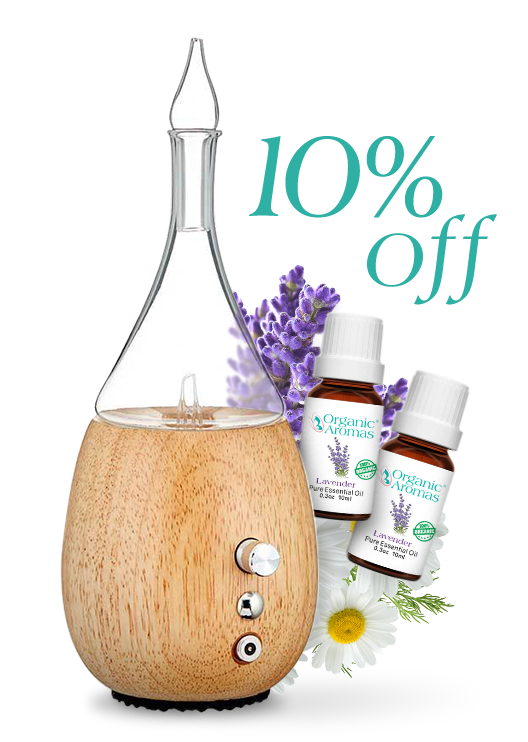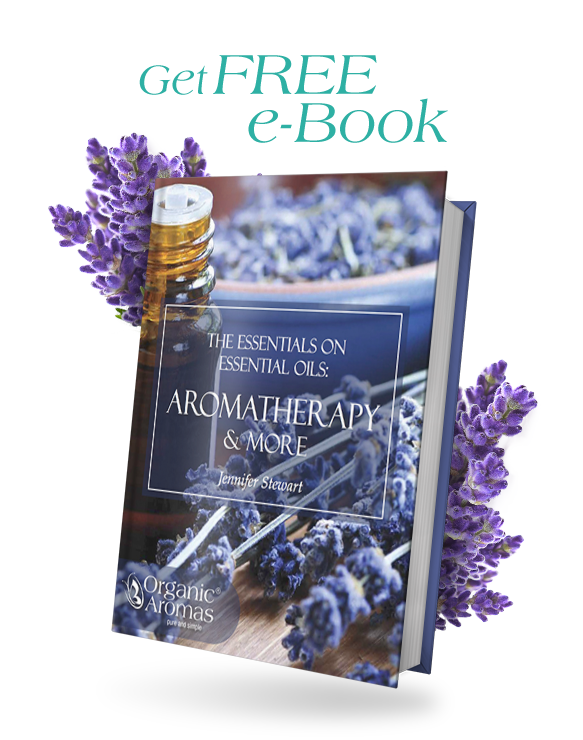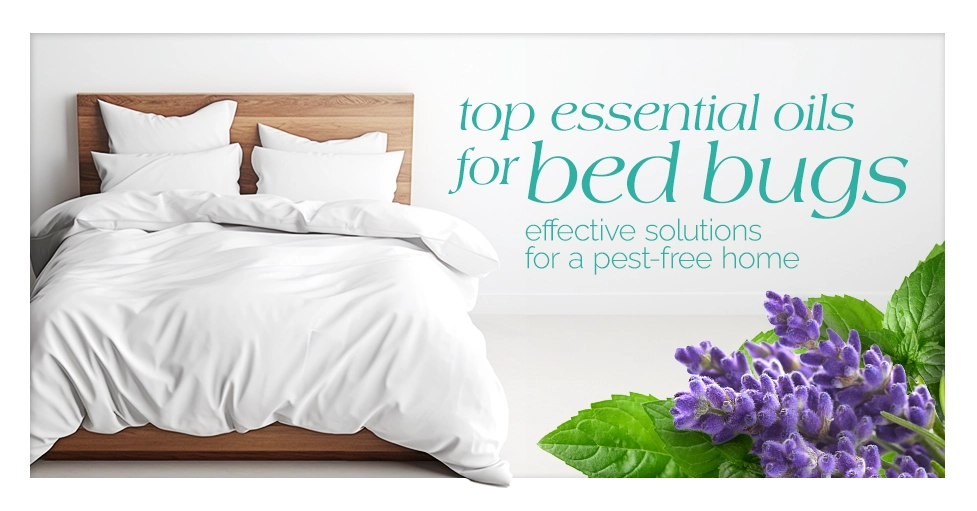Top Essential Oils for Bed Bugs: Effective Solutions for a Pest-Free Home
Are essential oils effective for bed bugs? Many people are turning to essential oils for bed bugs as a natural and safer alternative to chemical treatments. This article will explore the best essential oils for bed bugs, including plant essential oils, their effectiveness, and how to use them to create a pest-free home.
Natural Solutions for Bed Bug Infestations: Harnessing the Power of Essential Oils
- Essential oils like lavender, peppermint, tea tree, eucalyptus, and lemongrass have been found effective in repelling and killing bed bugs, offering a natural and environmentally friendly alternative to chemical treatments.
- Different essential oils work in unique ways to repel or kill bed bugs: lavender disrupts their breeding cycle, tea tree is toxic due to terpinene-4-ol, peppermint acts as a neurotoxin, eucalyptus disrupts feeding patterns with eucalyptol, and lemongrass causes paralysis with citral.
- Certain essential oils, such as thyme, oregano, and clove, can affect the bed bug’s nervous system by deactivating enzymes that resist pyrethroids, ultimately leading to increased mortality of resistant bed bugs.
- Combining essential oils with other pest control methods, such as regular vacuuming, heat treatments, and professional extermination, provides a more comprehensive and effective solution for bed bug infestations.
Discover the Natural Power of Essential Oils: An Introduction
Traditional chemical treatments for bed bugs often come with a hefty price tag, not just financially but also in terms of time and potential health risks. The quest for a more sustainable and safe alternative has led many to the doorstep of essential oils. These concentrated plant extracts are not only kinder to the environment but also pack a powerful punch against these relentless nocturnal pests. Some essential oils that have been found to be effective against bed bugs include:
- Lavender oil
- Peppermint oil
- Tea tree oil
- Eucalyptus oil
- Lemongrass oil
The organic chemical compounds found in plant essential oils, such as thymol, carvacrol, eugenol, and geraniol, are also being explored as natural alternatives to chemical treatments due to their efficacy in killing both resistant and non-resistant bed bugs.
Using these essential oils in combination with other natural remedies can help you get rid of bed bugs without the use of harmful chemicals.
The benefits are clear: essential oils are natural, boast a delightful aroma, and most importantly, have proven their mettle in thwarting bed bug infestations. This article is not just about the theory but the practical application of essential oils for a pest-free living space. We’ll explore the benefits, effectiveness, and the right ways to deploy this green arsenal against bed bug invasions, offering you a more harmonious way to protect your sanctuary.
Why Use Essential Oils for Bed Bugs?

Why turn to essential oils for bed bug control? The reasons are as abundant as the variety of oils themselves. Chemical treatments, while sometimes effective, can be a gamble with your health and that of your pets. Essential oils, on the other hand, present a less toxic and more environmentally friendly option, with the added bonus of a pleasant fragrance that can enhance the ambiance of your home.
Essential oils are more than just a pretty scent; they are a formidable force in repelling and eliminating bed bugs. Their essential oil constituents have been shown to disrupt the bed bug’s nervous system by deactivating enzymes that resist pyrethroids, ultimately leading to increased mortality of resistant bed bugs. This disruption in the bed bug’s nervous system and lifecycle offers an effective solution to bed bug problems without the drawbacks of chemical treatments.
From deterring to outright killing bed bugs, essential oils stand as a testament to the power of nature in pest control, helping to deter bed bugs effectively.
Essential Oils and Bed Bugs: Scientific Evidence
Recent studies have explored the efficacy of essential oils in managing bed bug infestations. Here are key findings:
Purdue University Study: Researchers found that essential oil compounds like thymol (thyme), carvacrol (oregano), and eugenol (clove) are effective against both resistant and non-resistant bed bugs. These oils enhance the effectiveness of pyrethroid insecticides, such as deltamethrin, by inhibiting enzymes that bed bugs use to degrade the insecticides (Purdue University).
USDA ARS Study: In collaboration with Rutgers University, USDA researchers evaluated various essential oils and found that while oils like blood orange showed moderate toxicity, silicone and paraffin oils were more effective. Essential oils should be part of an integrated pest management approach due to their varying efficacy (USDA ARS).
Field Efficacy of Essential Oil-Based Products: A study published in Insects assessed the effectiveness of an essential oil-based pesticide (EcoRaider) in apartment buildings. This product, containing geraniol and cedar oil, was as effective as a pyrethroid and neonicotinoid mixture, achieving over 90% bed bug reduction after 12 weeks (MDPI).
Scientific studies indicate that essential oils can be effective against bed bugs, particularly when used in combination with other control methods. Essential oils like thymol, carvacrol, and eugenol show particular promise. However, for optimal results, it is recommended to use these oils as part of an integrated pest management approach rather than relying on them as standalone treatments.
Best Essential Oils to Repel Bed Bugs

When it comes to sending bed bugs packing, not all essential oils are created equal. Some possess particularly potent properties that make them excellent at repelling these unwanted guests. Lavender, tea tree, and peppermint oils are the trifecta of natural repellents, each with unique characteristics that bed bugs find utterly repulsive. Additionally, various plant essential oils contain constituents such as thymol, carvacrol, eugenol, and geraniol, which have been shown to be effective in repelling bed bugs.
Lavender Oil
The soothing scent of lavender that calms our nerves is the very essence that throws bed bugs into disarray. Lavender oil is not just a repellent; it’s a disruptor, throwing off the breeding cycle of these pests and leading to a gradual decline in their population. It’s the compounds within this aromatic oil that inhibit their ability to reproduce, making it an important player in long-term bed bug management. Additionally, lavender oil affects the bed bug’s nervous system by deactivating enzymes that resist pyrethroids, ultimately leading to increased mortality of resistant bed bugs.
But how do you harness the power of lavender? It’s simple:
- Mix this potent oil with water to create a spray that can be applied to your bedding and furniture
- Soak cotton balls in the oil and strategically place them around your bedroom
- Even a few spritzes onto your linens before bedtime can help create an invisible shield against these tiny intruders.
Tea Tree Oil
Tea tree oil, with its distinctive scent and powerful properties, is a formidable foe against bed bugs. The secret weapon here is terpinene-4-ol, a compound with impressive insecticidal properties that bed bugs find particularly off-putting. While the scent may not be everyone’s cup of tea, its effectiveness in repelling bed bugs cannot be overstated.
Apart from keeping the bugs at bay, tea tree oil serves as a soothing balm for bed bug bites and the skin irritations that these pests leave behind. Applying a diluted solution to cracks and crevices can also target those bed bugs that have made themselves a little too comfortable in hard-to-reach hideouts.
Peppermint Oil
Peppermint oil brings more than just a refreshing minty aroma to the table; it’s a potent neurotoxin to bed bugs. The high menthol content in peppermint oil wreaks havoc on the bed bug’s nervous system, effectively acting as a chemical-free deterrent. This powerful scent is highly unpleasant to bed bugs, driving them out of their cozy corners and preventing future invasions.
The key to using peppermint oil effectively is to leverage its strong scent in areas where bed bugs are known to hide. A drop or two in strategic locations can go a long way in keeping these pests from settling into your space.

Powerful Essential Oils to Kill Bed Bugs

While some essential oils are great at repelling bed bugs, others take it a step further and show no mercy. Eucalyptus, lemongrass, and clove oils are the heavy hitters in the essential oil roster, each armed with potent insecticidal compounds that can put an end to bed bug infestations. Additionally, various plant essential oils, such as thymol, carvacrol, eugenol, and geraniol, have been shown to be effective in killing both resistant and non-resistant bed bugs.
Eucalyptus Oil
Eucalyptus oil is not just for clearing your sinuses; it’s a bed bug’s worst nightmare. Its principal component, eucalyptol, serves as a neurotoxin, scrambling the pests’ navigation systems and making it difficult for them to find their next blood meal. The oil’s potent smell also disrupts the bed bugs’ feeding patterns, adding another layer of defense to your pest control strategy.
A spray made with eucalyptus oil can be applied to areas where bed bugs are suspected to reside, creating an inhospitable environment for them to thrive. This not only repels the bugs but also has additional antimicrobial and antifungal benefits, contributing to a healthier living space.
Lemongrass Oil
Lemongrass oil is like sunshine in a bottle for us but a storm cloud for bed bugs. Its high citral content is the key, causing paralysis and ultimately the death of these pests. The citral not only paralyzes but is also toxic to bed bugs, ensuring that once they’re exposed, they don’t have a chance to recover.
This oil’s lemony freshness is a bonus for your home, masking any unpleasant odors while simultaneously serving as a deadly force against bed bugs. Sprinkle a few drops around your mattress and watch as this natural pest control agent goes to work.
Clove Oil
Clove oil, with its rich, spicy scent, is another powerful essential oil in the fight against bed bugs. Eugenol, the main ingredient in clove oil, is a proven insecticide and repellent, numbing and repelling the pests upon contact. Its strong aroma is intolerable to bed bugs, further enhancing its effectiveness.
While clove oil can be highly effective, it must be used with caution. Its potency means that it can cause skin irritation, so proper dilution is key. When used correctly, clove oil can have a swift impact, with higher concentrations capable of killing bed bugs in just a few hours.
Additional Effective Essential Oils

Beyond the heavyweights of the essential oil world, there are a variety of other oils that have shown promise in managing resistant bed bug populations. Thyme, cinnamon, and neem oils each contain compounds that can disrupt the pests’ nervous systems and growth cycles, adding to the arsenal of effective natural remedies. Additionally, various plant essential oils, such as thymol, carvacrol, eugenol, and geraniol, have demonstrated efficacy in killing both resistant and non-resistant bed bugs and enhancing the lethality of traditional insecticides.
Thyme Oil
Thyme oil is a silent assassin in the realm of essential oils, with its components thymol and carvacrol delivering toxic and repellent effects on bed bugs. The carvacrol in particular is known for its contact toxicity, causing immediate harm to these pests upon exposure.
Harnessing thyme oil’s power is as easy as creating a diluted spray solution, which can be used to treat bed bug-infested areas. The neuroinhibitory effects of its compounds make it a valuable addition to any bed bug prevention plan.
Cinnamon Oil
Cinnamon oil’s warm, inviting fragrance is a natural repellent for bed bugs. It not only disrupts their nervous system but also masks their pheromone trails, which are crucial for their movement and reproduction. By scrambling their communication, cinnamon oil adds confusion to the mix, making it harder for bed bugs to navigate and infest new areas.
This disruption to their pheromone trails means that bed bugs are less likely to find each other, mate, and lay eggs, ultimately reducing infestation rates. A few drops of cinnamon oil in known bed bug paths can serve as an effective deterrent.
Neem Oil
Neem oil, is not an essential oil and should only be used carefully, by a professional or at the advice of one. It is certainly useful against bed bugs, but it has a strong aroma, it can stain clothing and bedding and it is toxic in higher quantities and can sting or irritate the eyes and the mucous membranes. Neem as the ability to:
- Disrupt bed bug life cycles
- Act as a repellent
- Interfere with the molting process of bed bugs and stunt their growth, thanks to the azadirachtin component
- Combat bed bugs with its antimicrobial and anti-inflammatory properties
- Support a healthier living environment
Incorporating neem oil into your pest control regimen can be as simple as adding it to your laundry or using it in a spray. Its natural potency makes it a reliable ally in the ongoing battle against bed bugs.

Join Now and Get a Coupon for 10% Off!
How to Use Essential Oils for Bed Bug Control
Armed with a collection of essential oils, you’re now ready to turn the tide against bed bugs. But how exactly do you wield these aromatic weapons? A spray bottle solution is an effective tool; mix 10 to 15 drops of essential oils like lavender, tea tree, or peppermint with rubbing alcohol and distilled water for a potent homemade repellent. Additionally, plant essential oils such as thymol, carvacrol, eugenol, and geraniol can be used in homemade repellent solutions to enhance their efficacy.
Mixing Essential Oils
When it comes to essential oils, teamwork makes the dream work. Combining different oils can create a more complex and potent formula to repel bed bugs. For example, a DIY repellent might include:
- A tablespoon of rubbing alcohol
- 10 drops of carvacrol oil
- 5 drops of thymol oil
- 5 drops of geraniol oil
- Mixed with 6 ounces of distilled water
The synergy of these oils enhances their repelling properties, giving you a more powerful defensive line against bed bugs. Whether it’s citronella, orange, or lemon oil, each brings its own unique qualities to the blend, making your concoction a formidable foe for any bed bug daring to cross its path. Additionally, combining different plant essential oils can increase the lethality of traditional insecticides and effectively kill both resistant and non-resistant bed bugs.
Application Methods
Once you’ve concocted your essential oil solution, it’s time for deployment. Spraying the mixture on bedding, furniture, and mattresses can create a barrier that bed bugs are reluctant to cross. Be sure to shake the solution well to combine the ingredients before each use, and focus on areas where you’ve spotted bed bugs or are vulnerable to infestation.
You can also diffuse essential oils into the air or add them to your laundry to permeate your fabrics with a scent that bed bugs despise. The key is consistent and targeted application, ensuring that your living space becomes a no-go zone for these pests. Additionally, plant essential oils can be used in various application methods to enhance the lethality of traditional insecticides and repel bed bugs effectively.
Using a Nebulizing Diffuser
In addition to sprays and direct applications, using a nebulizing diffuser can be a highly effective method to control bed bugs, especially in rooms that are not frequently occupied. A nebulizing diffuser disperses essential oils into the air in a fine mist, maintaining a consistent and potent concentration of the oil in the environment.
How to Use a Nebulizing Diffuser:
- Preparation: Ensure your nebulizing diffuser is clean and in good working order.
- Oil Selection: Choose essential oils known for containing components with insecticidal properties, such as thymol, carvacrol, eugenol, or geraniol.
- Diffusion: Add the essential oils to the diffuser according to the manufacturer’s instructions. Set the diffuser to run continuously for several hours, preferably when the room is unoccupied to allow the oils to permeate the space thoroughly.
- Frequency: For best results, use the nebulizing diffuser regularly, especially before leaving the room unoccupied for extended periods. This creates an inhospitable environment for bed bugs and helps prevent reinfestation.
By incorporating a nebulizing diffuser into your bed bug control regimen, you can enhance the effectiveness of essential oils, ensuring a more comprehensive approach to pest management. This method is particularly beneficial for creating a persistent barrier in areas prone to infestation, providing continuous protection even in your absence.
Safety Precautions
While essential oils are natural, they are also potent and should be handled with care. Here are some tips for using essential oils safely, considering their plant essential oil components:
- Always dilute them with a carrier oil or water before applying them to your skin.
- Perform a patch test on a small area of skin to check for any allergic reactions before using the oil on a larger area.
- Some oils, like clove oil, are known to cause irritation and should be used cautiously.
By following these guidelines, you can enjoy the benefits of essential oils without any adverse effects. Additionally, handling plant essential oils with care is crucial due to their potent compounds like thymol, carvacrol, eugenol, and geraniol.
Remember that essential oils are for external use only and should be kept away from sensitive areas such as the eyes. It’s also important to avoid applying large quantities directly to the skin, as prolonged exposure can lead to health concerns.

Join Our Exclusive Member Club to get Big Discounts!
Combining Essential Oils with Other Pest Control Methods
For the most effective defense against bed bugs, essential oils should be part of a larger strategy. While they are powerful on their own, combining them with other pest control methods, such as regular vacuuming, heat treatments, and professional extermination services, can provide a more comprehensive solution. Additionally, combining plant essential oils with other pest control methods can enhance their effectiveness in killing both resistant and non-resistant bed bugs.
Keep in mind that essential oils are not a silver bullet; they are a piece of the puzzle in achieving a pest-free home. Regularly inspecting your living space, maintaining a clean and clutter-free environment, and using a high-quality sleep surface that can withstand high temperatures are all crucial steps in preventing and eliminating bed bug infestations. To eliminate bed bugs effectively, it’s important to combine these strategies with other proven methods.
Wrapping Up: The Power of Essential Oils for Bed Bugs Control
In the fight against bed bugs, essential oils emerge as a beacon of hope. They offer a natural, less toxic, and pleasantly fragrant alternative to the harsh chemical treatments traditionally used. From the soothing scent of lavender that disrupts the breeding cycle to the neurotoxic properties of eucalyptus and the potent insecticidal effects of clove oil, we’ve explored a variety of oils that repel and eliminate these resilient pests. Plant essential oils, such as thymol, carvacrol, eugenol, and geraniol, have shown effectiveness in repelling and killing both resistant and non-resistant bed bugs.
Remember, the key to success lies in a multifaceted approach. Combining essential oils with other pest control methods amplifies their effectiveness, helping you reclaim your home from bed bugs. It’s not just about killing the existing population but preventing future infestations. Embrace the aromatic world of essential oils and enjoy the peace of mind that comes with a pest-free living space.
The good news is that natural essential oils are helpful and useful in a number of scenarios and applications.

Sign Up to Get Your FREE
e-Book Here…
Frequently Asked Questions
Can essential oils completely eliminate a bed bug infestation on their own?
Essential oils can repel and kill bed bugs, but they are most effective when used alongside other pest control methods such as heat treatments and professional extermination services. It’s best to use them as part of a comprehensive plan for tackling a bed bug infestation. Additionally, plant essential oils that contain compounds like thymol, carvacrol, eugenol, and geraniol, have shown potential in enhancing the lethality of traditional insecticides and are effective against both resistant and non-resistant bed bugs.
How often should I apply essential oil solutions for bed bug control?
You should apply the essential oil solution regularly to vulnerable areas to effectively manage bed bugs in your home. The frequency of application depends on the severity of the infestation and your pest management routine.
Are there any risks to using essential oils for bed bug control?
Yes, there are risks to using essential oils for bed bug control, such as skin irritation and allergic reactions, so it’s important to dilute them properly and conduct a patch test before widespread use. Be cautious to prevent any adverse effects.
Can I mix different essential oils to create a more effective bed bug repellent?
Yes, mixing different essential oils can create a stronger bed bug repellent, such as combining geraniol and citronellic acid or carvacrol and thymol.
How do I properly dilute essential oils for use against bed bugs?
To properly dilute essential oils for use against bed bugs, mix 10 to 15 drops of essential oils with rubbing alcohol and distilled water to create a spray solution. Always use a carrier oil or water for dilution and avoid applying undiluted oils directly to the skin.
Are essential oils effective against other insects?
Yes, they can be very effective against, mosquitoes, lice, ants, spiders and many more.



I have sent In before and I’m still as bad now my hair is going bold in places and my skin looks like psoriasis is starting now, I’m at my wits end and need some help and solutions I tried oils baking soda app cider vinegar and rice water coconut oil everything and nothing seems to work. I really can’t take this anymore . I’m so tired and desperate and depressed please help anyone who can advise me please help me I’m begging please
I’m suffering really badly from itching and my hair is falling out and really itchy and no one can see anything like lice or anything but my immune system’s low and I have really bad Copd and I have really bad mucus and I have tried nit lotion and been to the doctor and it’s been like over a year and I have moved and gotten new bed and mostly everything is new but I’m still suffering really bad and have spots and feels like something crawling on me and my head. I’m so desperate and depressed and don’t know what to do anymore I even cut my ponytail off and I’m used to having long hair. My nails are brittle too. Sometimes it makes me feel like I can’t get any better and I can’t cope m. Please help me please any advice. I have oils lotions and try making my own potions but I’m not sure what to do anymore.
Will get peppermint oil
How many drops of each essential oil do you use
Thank you for sharing about aromatherapy and essential oils, 4 essential oils to keep bed bugs away with us, these will be really helpful to many.. I love reading this blog; it talks so much about planning a great idea about it. Keep sharing such informative articles in future, will be appreciated.
https://www.bpestfree.co.nz/
Next time I’m travelling, I will try this out.
good to know in case i ever have this problem
Thanks for info
Great advice!
Amazing post! A real shock treatment! 🙂
Awesome read ..thank you
Thanks for the tips.
I don’t have bed bugs and I hope I never do (knock on wood). But useful information.
What a great idea!!! Thank you
Great information! Hope I never need it 😉
a very useful article that would come in handy to know. thank you.
its amazing
The best options to get rid of this enemies, you fell safe and have pros from essential oils.
Thanks for the information, for me it has been very useful since I did not know how to eliminate these types of pests.
This is wonderful I live in an apartment and I always worry about pests 🌿
Muchas gracias por el articulo y la información, como siempre muy util.
proactive is the way to go.
Thanks i need this NOW!
Thank you very much for the information, now we can sleep free of bugs
Thanks for the fabulous review , being proactive will save so much grief
Great information here. It is SO much better to keep bed bugs away than to have to eliminate them once they arrive. When my son was college-age, he had a case of bed bugs in his studio apartment, and we ended up having to help him by paying almost $1000 to heat treat his place to get rid of them. Prior to that, nothing worked. It truly was a nightmare for him!